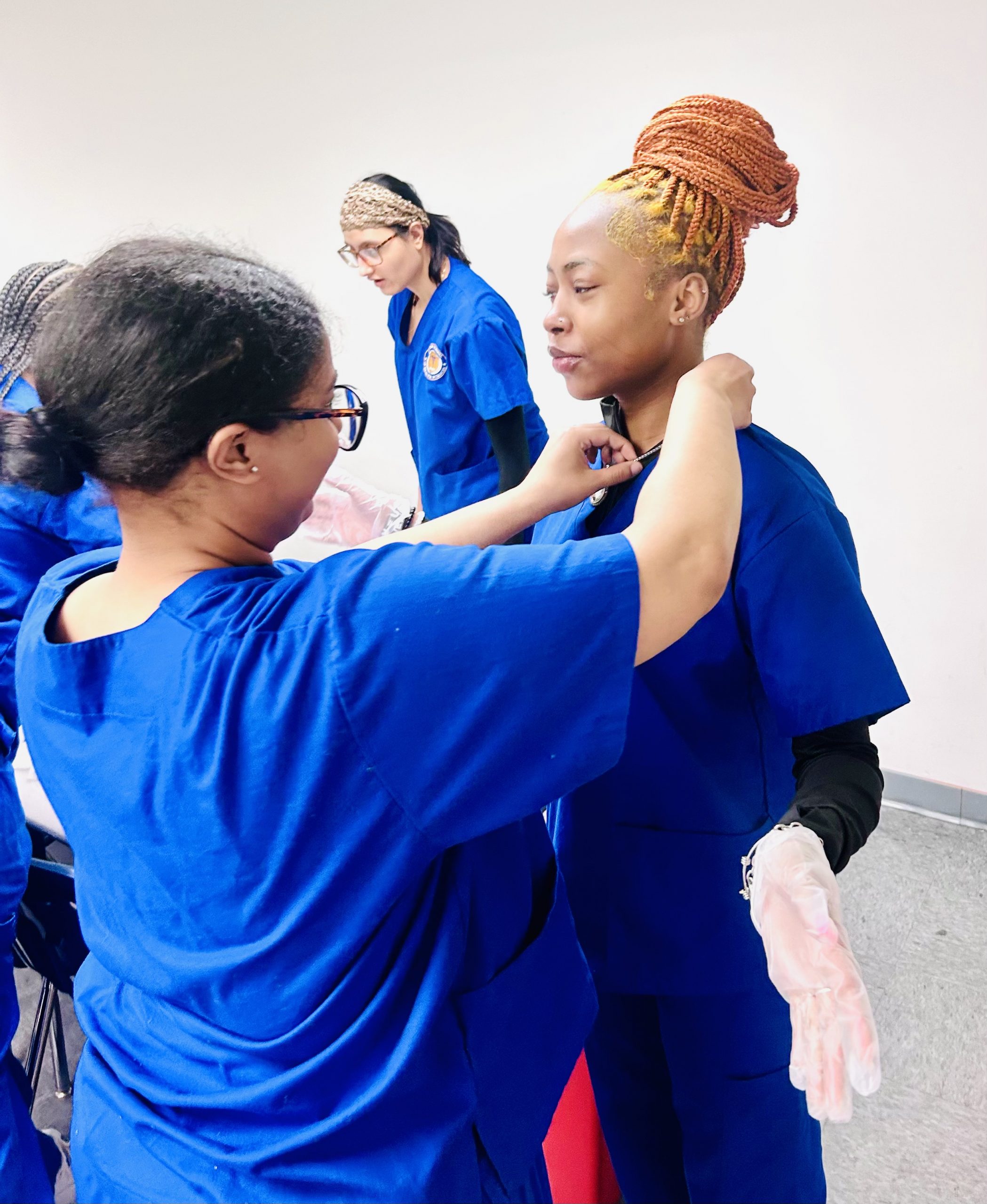
The role of a medical assistant (MA) in specialty practices is crucial, as these professionals help ensure the smooth operation of healthcare delivery in various specialized fields, such as cardiology, dermatology, orthopedics, pediatrics, and more. Below are the key responsibilities and contributions of medical assistants in specialty practices:
Clinical Support:
Assisting with Procedures: MAs in specialty practices often assist healthcare providers during specialized procedures or examinations. For example, in dermatology practice, they may help with skin biopsies or cryotherapy. Patient Preparation: Medical assistants prepare patients for examinations or treatments by explaining procedures, taking vital signs, and ensuring patients are comfortable. Conducting Diagnostic Tests: Depending on the specialty, MAs may perform specific tests relevant to the practice, such as EKGs in a cardiology office or vision tests in an ophthalmology setting. The Allen School of Health Sciences medical assistant program includes hands-on learning in a clinical classroom where you will learn how to take a patient’s vital signs, conduct an EKG, and draw blood (phlebotomy).
Patient Education:
Providing Information: MAs educate patients about specific conditions, treatment options, and preventive care relevant to the specialty. For instance, they may provide guidance on managing diabetes in an endocrinology practice. Instruction on Medication and Treatment: They explain how to use medications or equipment needed for treatment, such as inhales or blood glucose monitors.
Administrative Duties:
Appointment Scheduling: MAs manage the scheduling of appointments, ensuring that patients are seen in a timely manner while coordinating with the specialty provider’s unique requirements (e.g., follow-ups after specific procedures). Insurance and Billing: They handle insurance verification and may assist with billing inquiries, ensuring that claims are submitted correctly for specialized services.
Patient Management:
Maintaining Medical Records: MAs ensure that patient records are accurate and up to date, including medical histories, treatment plans, and any test results pertinent to the specialty. Tracking Follow-Up Care: They may assist in coordinating follow-up appointments or specialty referrals, helping to ensure continuity of care for patients.
Specialized Knowledge:
Understanding Specific Conditions: MAs working in specialty practices often receive training related to the specific conditions treated in that field. This knowledge allows them to provide better support to both patients and providers. Staying Updated on Best Practices: They keep abreast of developments and advancements in their specialty, allowing them to assist in providing the best care possible.
Equipment and Instrument Management:
Handling Specialized Equipment: MAs are often responsible for maintaining and managing specialized medical equipment, ensuring it is properly sterilized and functioning correctly, which is especially important in surgical specialties. Inventory Management: They may also keep track of supplies and equipment specific to the specialty practice, ensuring that everything is available and adequately stocked.
Collaboration with Healthcare Teams:
Team Support: MAs work closely with physicians, nurses, and other healthcare professionals, contributing to a collaborative healthcare environment that fosters effective patient care. Communication: They facilitate communication between patients and healthcare providers, ensuring that essential information will be relayed in an accurate and timely manner.
Medical assistants play a vital role in specialty practices, serving as a bridge between patients and healthcare providers. Their diverse responsibilities encompass both clinical and administrative tasks, enabling the efficient and effective delivery of specialized healthcare services. The skills and knowledge that MAs bring to specialty practices are instrumental in ensuring high-quality patient care and positive health outcomes. At the Allen School of Health Sciences students will learn both administrative and clinical skills in a hybrid learning environment. Students will have classes in an interactive online environment combined with hands on learning in a clinical classroom. In addition, the Allen School medical assistant program includes a 275-hour internship. This allows students to get real world experience and be career ready upon completion of our program. To learn more about the Allen School and our medical assistant program, contact us today! www@allenschool.edu
